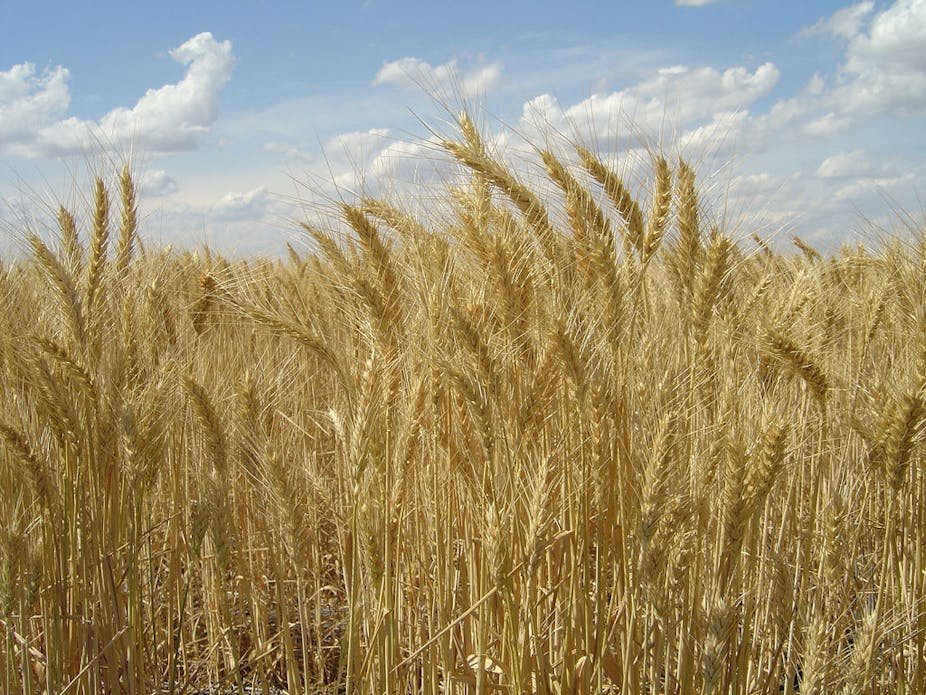Scientists today said they were appalled and disappointed by Greenpeace protesters who whippersnippered a genetically modified wheat crop being grown as part of a CSIRO trial.
The trial crop was part of an investigation into altering wheat carbohydrate content to reduce glycaemic response and improve metabolic health. Planting began in 2009.
“CSIRO can confirm there has been a break-in overnight at their crop trial site at Ginninderra in the ACT. The police, and the government’s gene technology regulatory authority - the Office of the Gene Technology Regulator (OGTR), have been informed and are inspecting the site,” said Dr Jeremy Burdon, Chief of CSIRO’s Plant Industry Division.
“CSIRO is currently assessing the damage to the trial crops and considering next steps.”
Dr Christopher Preston, Associate Professor in the School of Agriculture, Food and Wine at the University of Adelaide said the attack was upsetting.
“As an active scientist, I am appalled that a fellow scientist’s experiments have been destroyed through this action,” he said, adding that the OTGR had assessed the trial to offer no significant threat to human health or the environment.
“These trials are not just about the development of genetically modified crops that may at some future time be developed commercially, but frequently provide spin-off information that is of use in our understanding of gene action in the environment. This important information is also lost.”
Activists have voiced concerns about the genetically modified (GM) wheat pollen getting into other fields and contaminating other crops.
The CSIRO said it had put measures in place to reduce that risk, including a high fence, a buffer zone in fields around the plants and ensuring no wheat compatible species were planted within 500 metres of the fence.
But Greenpeace Food Campaigner, Laura Kelly, said the protesters had no trouble accessing the site, suggesting security was too low.
“They walked in wearing full hazmat gear and walked out without encountering a single security person. That’s part of our concern. They were able to engage with a biosecurity site without anyone batting an eyelid,” she said, adding that the protest was timed to occur before the crop flowered.
“The government’s own data shows that 60% of the cross contamination doesn’t come from windfall, it comes from human error in managing the site.”
The CSIRO said the resulting wheat was intended to be fed to animals as part of a trial but Greenpeace said human trials were planned as well.
“We had no choice but to take action to bring an end to this experiment,” Ms Kelly said in a statement.
“GM has never been proven safe to eat and once released in open experiments, it will contaminate. This is about the protection of our health, the protection of our environment and the protection of our daily bread.”
Professor Mark Tester, a plant scientist at the University of Adelaide, said the protest was deeply disappointing.
“GM technology is not a magic bullet but it does offer new opportunities to improve the quality and quantity of wheat,” he said.
“One cannot make any generalisations about GM or any other technology – it all depends on how it is used… One cannot say that all GM is good or that all GM is bad but it is one of many tools in our toolbox to try and help protect the environment and feed people around the world.”
He pointed out that farmers had been modifying the genomes of plants for thousands of years through breeding.
“Previously we have been crossing plants and hoping for the best – now we are able to selectively choose the genes that we want and discard the ones that we don’t.
Genetic modification may not solve all the problems, but with growing populations and climate change causing more extreme weather events, then it doesn’t make sense to ignore this potentially useful tool.”
The CSIRO said that police were at the protest site inspecting the damage and that it was unable to answer further questions while the investigation was underway.
However, Ms Kelly said the protesters were not charged by police.
The CSIRO is a founding partner of The Conversation.

